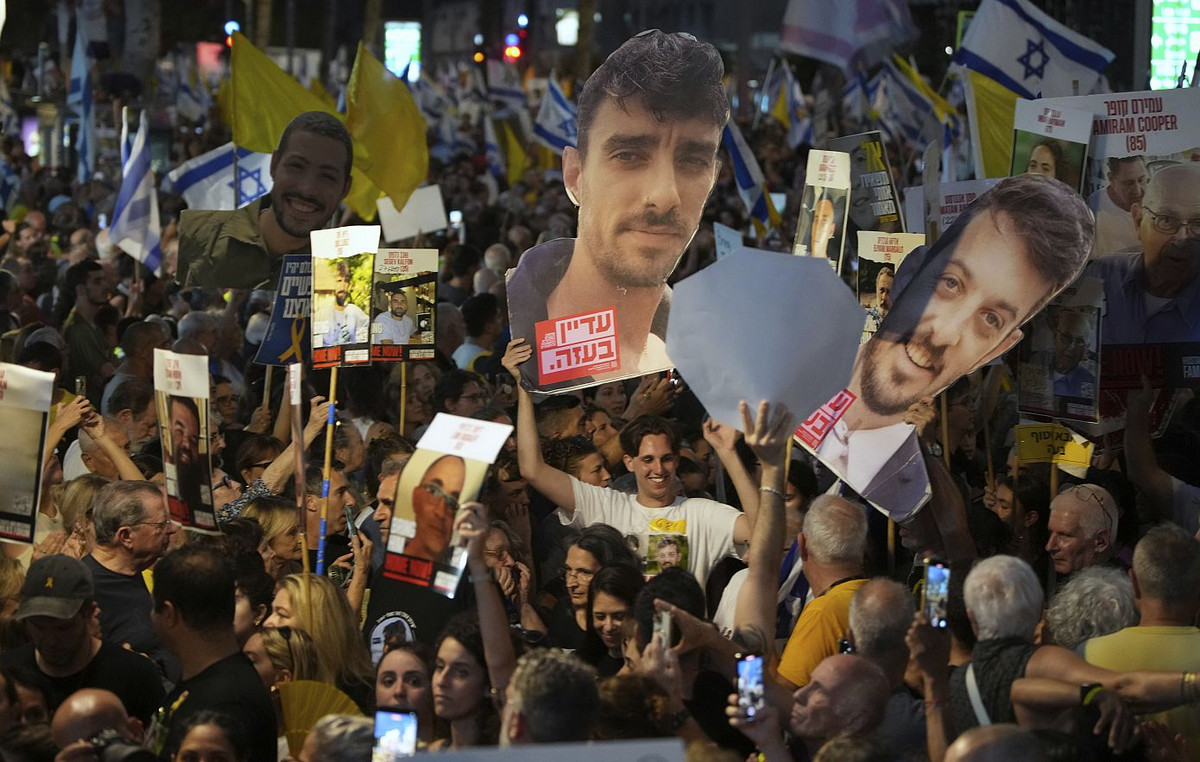Researchers will assess whether fractional booster doses of Covid-19 vaccines can provide the same immune response and fewer adverse reactions. The study is carried out by the Oswaldo Cruz Foundation (Fiocruz Mato Grosso do Sul) and the Instituto Sabin de Vacinas.
The provision of fractional booster doses would make it possible to multiply the supply of vaccines, especially in the poorest countries, in addition to guiding new immunization strategies. According to the Sabin Institute, only 17.4% of the population in low-income countries have been vaccinated against Covid-19, while in high-income countries this rate reaches 72%.
The research will be conducted in Brazil and Pakistan, with the participation of 1,440 volunteers in each country, who will receive the Pfizer (full dose, half or one third), AstraZeneca (full or half dose) and Coronavac (full dose) vaccines. being followed up for six months.
For the study, the institute received US$ 6.3 million (R$ 32.7 million) from the Coalition for the Promotion of Innovations in favor of Epidemic Preparedness (Cepi), an international organization that aims to finance research projects to accelerate the production of immunizers.
“In vaccine development, the dose is determined at an early stage, balancing efficacy with possible side effects, until arriving at an effective dose with the least possible side effects,” says Denise Garrett, vice president of Applied Epidemiology. from Instituto Sabin de Vaccines, in a statement.
“With the pandemic, there was great pressure for an immunizing agent that was effective. We were in a situation where we couldn’t risk failing. But we are at a point now where we have the opportunity to optimize that dose,” he adds.
volunteers
The choice of Brazil and Pakistan considered the vaccines applied in both countries, the availability of patients who have not yet taken the booster dose and partnerships in the scientific field.
In Campo Grande, the study will be conducted in partnership with the Federal University of Mato Grosso do Sul (UFMS) and the Municipal Health Department.
Fiocruz Mato Grosso Sul researcher Julio Croda explains that, with the help of community agents, an active search will be carried out for people who have not yet taken the booster dose, especially in areas of the city with lower vaccination coverage.
In order to recruit volunteers, home visits may take place at the end of the day or on weekends. “If we can approach them at home, we can talk, explain what the project is about, the benefits of the vaccine”, said the researcher.
There will be four visits: inclusion (in which the person receives all the information, signs the adhesion term and receives the vaccine booster), in 28 days, three months and six months, always with blood collection.
Volunteers diagnosed with Covid-19 or who have a reaction during this period will receive medical attention. “It is a ‘blind’ study, in which most of the team will not know which vaccine was applied. And there will be a mobile unit in the neighborhood with a doctor, nurse and pharmacist who will handle the vaccine, to be close to the patient if he has any need,” said Croda.
Background with polio and yellow fever
Studies for fractionation of doses have already been carried out previously. In the past, the World Health Organization (WHO) has already recommended splitting vaccines for polio and yellow fever, given the shortage of immunizations.
The vice president of the Sabin Institute for Vaccines highlights that a fractional booster dose can have fewer side effects and, consequently, increase the acceptance of immunization.
“With the new variants, which bring the need to apply more booster doses, it is very important to use the lowest possible dose. If the dose is lower, the more tolerance there will be and possibly more boosters we can apply,” he explained.
According to Denise, if the study shows that fractionated doses offer protection similar to the full dose, the amount of vaccine available will increase, leading to new strategies for vaccination and allocation of immunizers.
“This is a short project, a maximum of one year, between recruitment and follow-up, precisely to be able to generate a quick response. And it should benefit more other countries [que têm oferta menor de vacinas] than Brazil, especially the poorest countries, in the sense of understanding whether the fractional dose is feasible”, stated Croda.
another project
The city of Viana, in Espírito Santo, hosts an international study that evaluates the ability to immunize with half a dose of the AstraZeneca vaccine.
According to the city hall, tests on volunteers showed that the half dose was able to induce the production of neutralizing antibodies in 99.8% of the participants, a result similar to that achieved in the standard dose scheme.
The study has already been presented to the WHO, Fiocruz, the Pan American Health Organization (PAHO), the Ministry of Health’s Technical Chamber to Combat Covid and the National Health Surveillance Agency (Anvisa).
Source: CNN Brasil
I’m Susan Karen, a professional writer and editor at World Stock Market. I specialize in Entertainment news, writing stories that keep readers informed on all the latest developments in the industry. With over five years of experience in creating engaging content and copywriting for various media outlets, I have grown to become an invaluable asset to any team.







